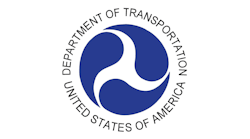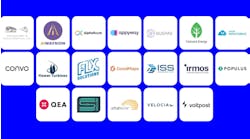Tampa Hillsborough Expressway Authority concludes THEA CV Pilot project
The Tampa Hillsborough Expressway Authority (THEA) announces the conclusion of the THEA CV Pilot, a $27 million innovation project the agency began in 2015. The Pilot implemented connected vehicle (CV) technology into real-life scenarios using the Selmon Expressway as a living lab for testing.
The Pilot began in September 2015 when the U.S. Department of Transportation (USDOT) designated THEA as a test bed for CV technology. The award led to a full-scale operation of CV devices throughout downtown Tampa, culminating in a collaboration between Honda, Hyundai America Technical Center, Inc, and Toyota Motor North America. This industry-wide collaboration is among the first of its kind, where auto manufacturers joined in deploying vehicles with CV technology to provide the next evolution of delivering safer transportation.
Thanks to THEA's efforts as an early adopter, Tampa was one of the first cities in the nation to deploy CV technology on actual city streets, fitting transportation infrastructure, transit vehicles and over 1,100 volunteer drivers with the ability to receive safety alerts.
The THEA CV Pilot produced a massive amount of open shared data that can be used to help spur private/public collaborations, eventually resulting in better driving conditions. Data demonstrated that the THEA CV Pilot prevented 21 potential pedestrian crashes, delivered 19 red light violation warnings, avoided 17 potential vehicle collisions, alerted 14 wrong-way drivers and issued over 20,000 safety advisories.
"These stats are impactful," said THEA Director of Planning and Innovation Robert Frey. "All of these alerts represent a person that avoided a traffic incident like a collision or crash. The pilot successfully demonstrated that connected vehicle technologies transmit crucial transportation information, which can save the lives of drivers, pedestrians and cyclists."
The THEA CV Pilot consisted of four phases of programming:
- Planning
- Development
- Data collection
- An industry-wide collaboration with auto manufacturers
In Phase 4 alone, the THEA CV Pilot identified 150,000 interactions with CV-equipped vehicles, issued over 22,000 vehicle-to-vehicle (V2V) and vehicle-to-infrastructure (V2I) warnings and delivered almost 72 million Travel Information Messages (TIM).
"According to some of the early research, connected vehicle technology can address at least 78 percent of vehicle-to-vehicle related collisions,” said Honda Research Institute Chief Engineer Sue Bai. "The technology we have deployed in the THEA CV Pilot is paramount in achieving Honda’s vision for a collision-free society."
The THEA CV Pilot was the only program to implement real-time, Vehicle-to-Infrastructure (V2I), and Vehicle-to-Vehicle (V2V) communications through the recruitment of Selmon Expressway drivers. It was also the only site in the country that produced real-time data. The other two sites awarded as part of the USDOT's Connected Vehicle Pilot Deployment Program were New York City and the Interstate 80 corridor in Wyoming.
“Congratulations to Bob Frey and the entire CV Pilot team. Their passion and drive to implement and test this technology in Tampa is a game-changer for our industry and will result in lives being saved,” said THEA Executive Director and CEO Greg Slater.
With the CV Pilot ending, THEA will continue its efforts in advancing the Selmon Expressway and implementing intelligent transportation systems. The Pilot's collected data will also be utilized to leverage existing technology on the I-4 Frame in partnership with the Florida Department of Transportation (FDOT) in a $43 million program budgeted over the next six years.



